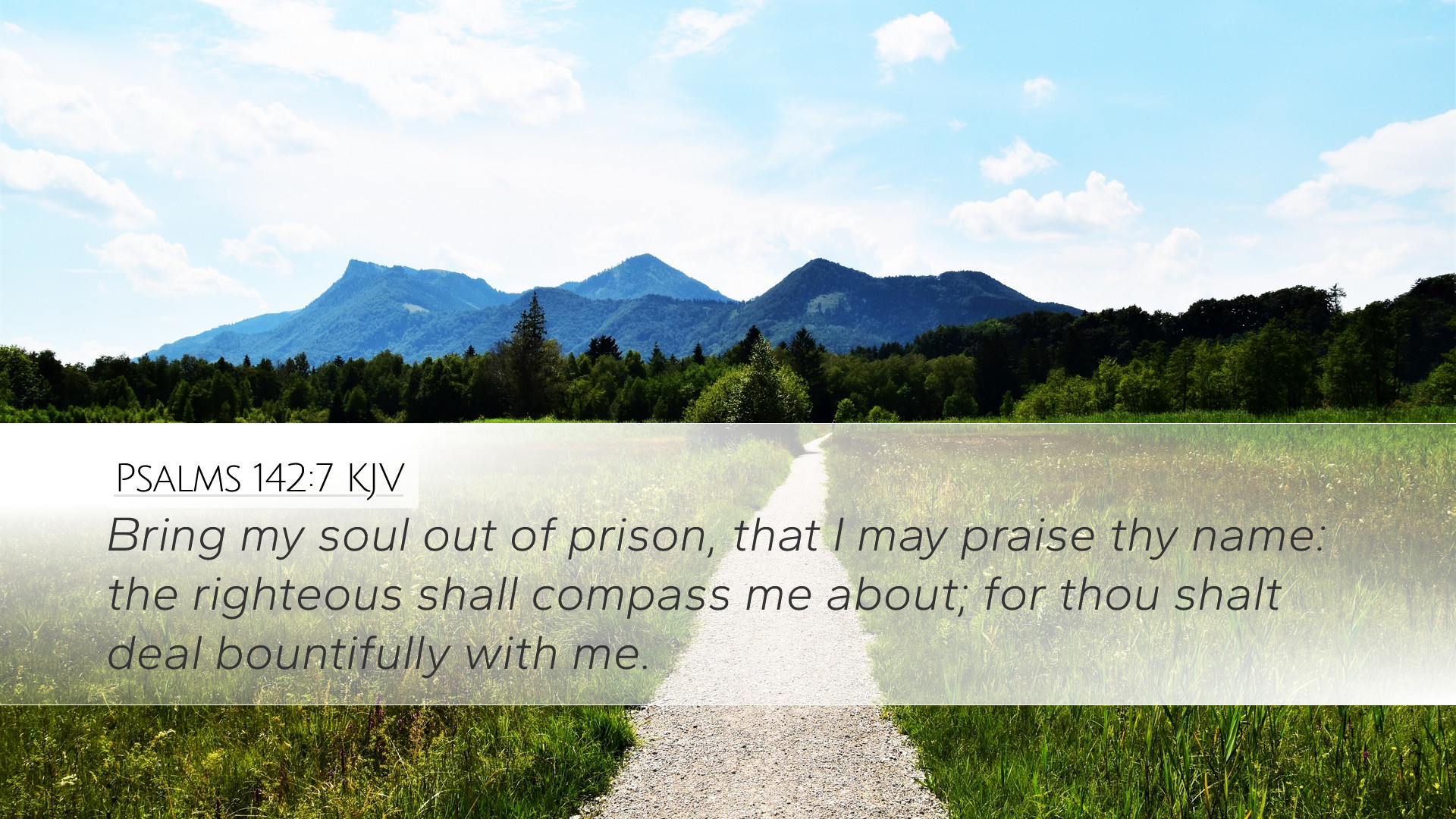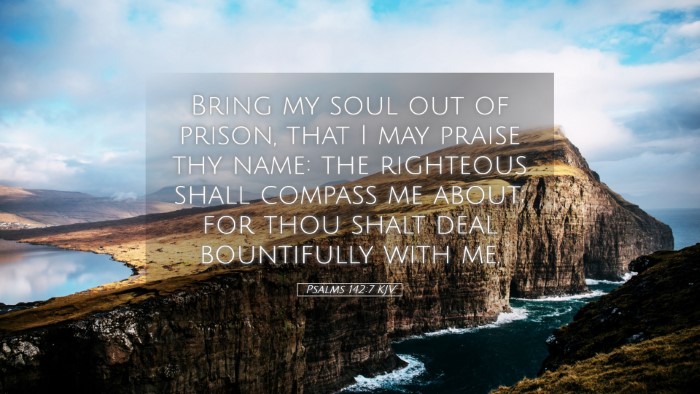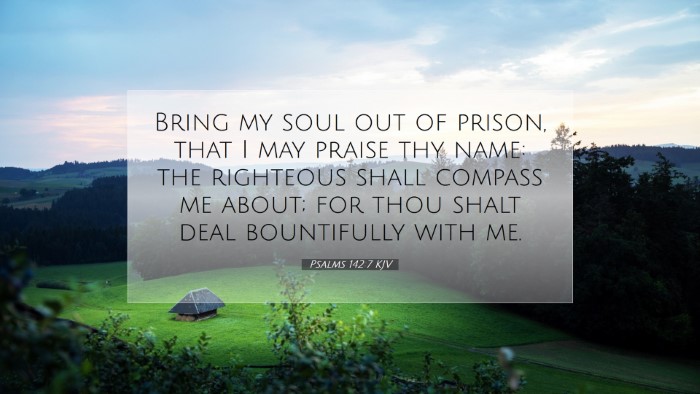Psalms 142:7 Commentary
Verse Context: Psalms 142 is attributed to David, a poignant expression of desperate prayer. This particular verse encapsulates his plea for deliverance and captures the psalmist's feelings of isolation. It reads, "Bring my soul out of prison, that I may praise thy name: the righteous shall compass me about; for thou shalt deal bountifully with me."
Exposition of the Verse
This verse is a deep invocation for liberation. The notion of being imprisoned resonates deeply in a spiritual sense, symbolizing the feeling of being trapped or bound by circumstances beyond one’s control—be it sin, despair, or external pressures. David's cry represents a universal theme of longing for freedom and the restoration of communion with God.
Matthew Henry's Insights
Matthew Henry emphasizes the urgency and earnestness of David's appeal. He notes that the metaphor of "prison" suggests an internal state of anguish and helplessness. Henry points out that this psalm is a petition for release not only from physical captivity but also from the spiritual and emotional turmoil that afflicts the soul. He interprets David's request to “bring my soul out of prison” as a call to divine intervention, reflecting the belief that only God can liberate the soul from its shackles of distress.
Albert Barnes' Commentary
Albert Barnes notes that the plea "bring my soul out of prison" highlights both the desperation and the hope present in the psalmist's words. He describes the “prison” as a metaphorical representation of affliction, where the soul feels confined by trials. Barnes further elucidates the connection between deliverance and the ability to praise God, suggesting that spiritual freedom serves as a precursor to authentic worship. According to Barnes, true praise is birthed from a place of personal deliverance, aligning with the scriptural truth that the righteous rejoice in the salvation of the Lord.
Adam Clarke's Perspective
Adam Clarke expounds on the themes of companionship and righteousness present in this verse. He indicates that when David expresses hope in being surrounded by the righteous, it speaks to the communal aspect of faith. The declaration that “the righteous shall compass me about” indicates a future joyous communion upon his deliverance, reinforcing the idea that God’s intervention leads to restored relationships with both God and community. Clarke further illustrates that God’s “bountiful dealings” signify not just mere deliverance, but a profound abundance that follows spiritual restoration.
Theological Reflections
- The Nature of Imprisonment: The verse evokes a profound understanding of spiritual and emotional bondage. This concept is significant for theological discussions on sin and salvation, presenting the view that souls may find themselves in a 'prison' due to various life circumstances.
- The Role of Prayer: David’s cry is a model of earnest prayer. It highlights the importance of expressing our needs to God, mirroring the intercessory role that believers are called to engage in for themselves and others.
- Praise as a Response: The link between liberation and praise is vital. The freedom sought in this verse serves a dual purpose: deliverance for the individual and the glorification of God through praise, emphasizing that spiritual freedom flourishes through worship.
Application for Pastors and Theologians
This verse can serve as a powerful illustration in sermons or theological discussions surrounding the nature of God’s deliverance. Pastors can encourage their congregations to understand the symbolic meaning of prisons in their lives, fostering a dialogue about the barriers—be they sin, doubt, or life’s struggles—that keep them from experiencing God’s fullness. The call to communal support in the pursuit of righteousness is another vital application, challenging believers to be present for one another in times of distress.
Conclusion
Psalms 142:7 resonates profoundly as a contemplative prayer for deliverance. Its layered meanings found in the commentaries of Matthew Henry, Albert Barnes, and Adam Clarke provide rich insights for further study and reflection. Understanding the spiritual implications of this verse encourages both personal and communal engagements with God, fortifying the belief that through Him, true freedom and restoration are attainable.


